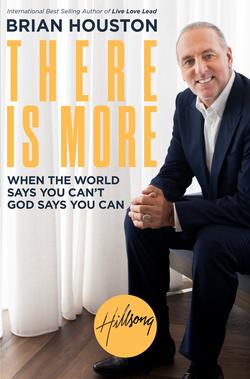Читать книгу There is More: When the World Says You Can’t, God Says You Can - Brian Houston, Brian Houston - Страница 28
Costly Compromise
ОглавлениеJust as the mystery of more has everything to do with knowing Jesus, so the journey of more must ultimately be about obeying Him. But our obedience must not fall victim to pragmatism or convenience and must never be in disagreement with the conviction of the Holy Spirit.
King Saul’s whole reign was brought to an end because although he sacrificed the burnt offerings as a ritual, he did it in an environment of excuses, interpretation, and ultimately disobedience (see 1 Samuel 13:1–14).
Saul was in the eye of the storm in Gilgal. Samuel the prophet had departed after telling Saul he would return in a week and leaving the king with explicit instructions that no sacrifice be made until he—Samuel, acting as God’s mouthpiece—returned. But the tense environment meant that pressure was mounting on Saul. Thousands of Philistine men, horses, and chariots were surging toward them. The Israelites were completely outnumbered and trembling with fear. The Bible narrative paints a picture of Saul’s men in jeopardy and with distress levels at an all-time high as they ran for the hills in the most literal sense. We are told that many hid in caves, thickets, rocks, holes, and pits, while others escaped altogether, crossing the Jordan in their panicked efforts to get away.
Saul could see that his men were quickly descending into a rabble, and after waiting for Samuel for seven days, he took matters into his own hands. He made the sacrifices and burnt offerings he was so clearly told not to make until the priest returned.
When Samuel returned, Saul offered every conceivable excuse he could muster, but Samuel had only bad news for the king. It wasn’t God’s plan for Saul to interpret the Word of the Lord, adjusting commandments to fit the circumstances. It was clear to everyone that Saul was a leader with more faith in his own judgment than in God, who had anointed him Israel’s first king. His disobedience cost him his kingdom.
How often in our journey through life do our pressing circumstances seem to give us every logical reason to translate, decipher, and interpret the Word of God in a manner that suits us rather than to simply trust and obey? No matter how compelling the inner voice of pragmatism sounds, when God’s Word says, “Let your ‘Yes’ be ‘Yes’ and your ‘No’ be ‘No’” (Matthew 5:37, WEB), it doesn’t mean that we can simply understand it as yes until it doesn’t suit us and then interpret things as no until it’s inconvenient. Compromising on our beliefs or misinterpreting the truth of God’s Word will never attract abundance and blessing.
As a pastor of a church, I am regularly asked by the media about my thoughts on current affairs and prominent social issues. I constantly feel as if the premise behind the questions is flawed. I don’t believe that “What do you think?” is the right question to ask, as what I think can so quickly descend into pragmatism, clichés, and compromise. I could so easily respond by saying such things as “Everyone deserves to be happy” and “It’s not my job to judge others” or even “Live and let live.” And that might be what I think. But is that what really matters?
Obedience to God and His Word is the only right way for me to responsibly shepherd His people. And it’s ultimately my commitment to obey God that will keep His abundance and blessing flowing in my life and ministry and in the church that I’ve been honored to pastor all these years. Sometimes that means taking the hard road when it’s the right road to take.
I have little regard for the harsh spirit behind those who sit on the sidelines, spitting vehement judgment and self-righteous vitriol at people who may be on the other side of the fence from where they sit. To me, it is an agonizing choice to commit to obedience to God and His Word if I feel it may hurt someone’s feelings or paint me in a negative light, but I have seen the fallout that accompanies compromise. I have looked on as any trace of abundance has dried up for people who have allowed obedience to Christ and His Word to be eroded by convenient interpretation rather than faithful obedience.
The life of grace we are called to is fueled by our love of the Savior. As we turn our eyes on Jesus, study His Word, and trust in His promises, it will become easier to live in obedience, discard convenience, and simply obey rather than interpret.
